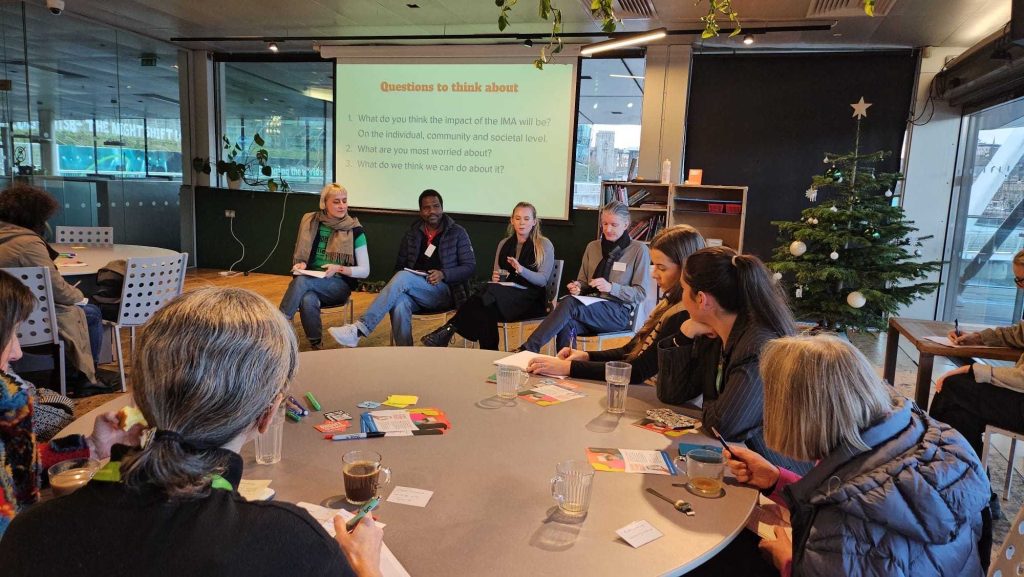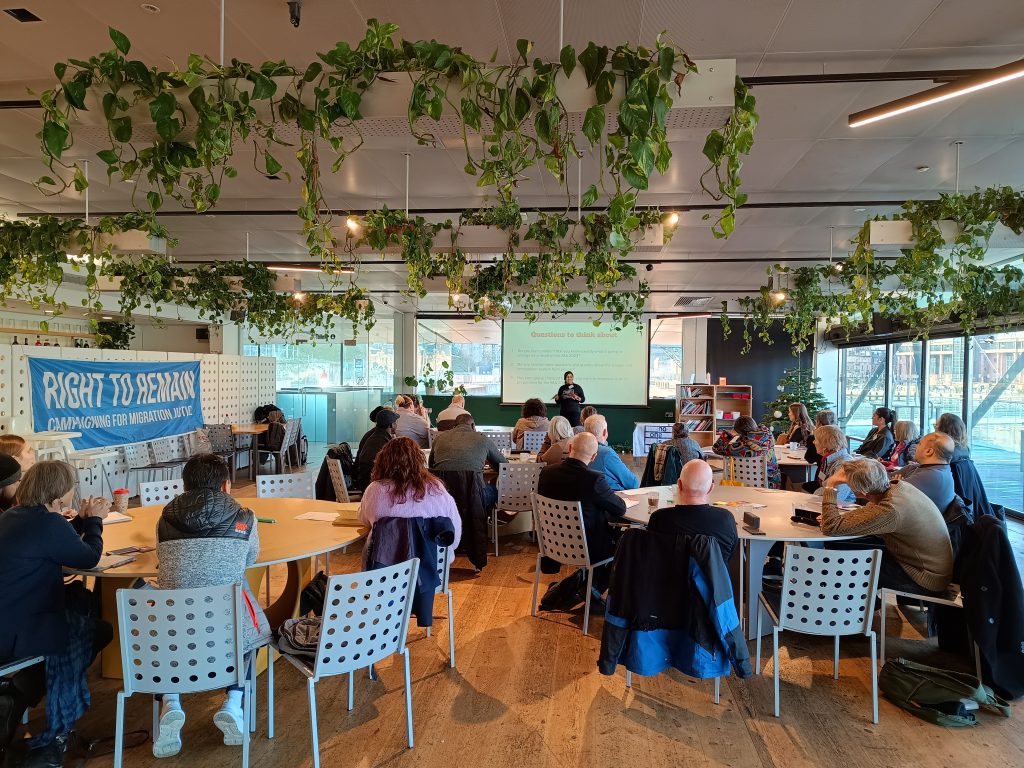Since September, Right to Remain have been running a series of events on the Illegal Migration Act – sessions for groups and organisations working in solidarity with migrants, refugees and people seeking asylum to come together to share concerns, needs, ideas and intelligence. So far, we have visited Manchester and Liverpool, and on 5 December, we journeyed up to the North East, to facilitate a workshop for people in Newcastle, Gateshead, Sunderland, Teesside and beyond.
Partnering once more with our friends at Asylum Matters, we were joined by 30 attendees from across the region, at the impressive Baltic Centre for Contemporary Arts in Gateshead, who hosted our event in their serene River Terrace. After taking attendees through the Act, we split into small groups to discuss the possible impact on our communities, taking into consideration the effect the Act might have both on the individual and societal levels.
Patterns emerged around the impact on mental health, and the risk of people not able to access correct information. Groups also identified the risk of people being forced underground, both by falling out of the asylum system completely, or being exploited due to their lack of securitised status in the UK.
This is something we have been worried about at Right to Remain, when we identified our three key concerns in relation to the IMA: destitution, detention and exploitation. It was fitting then, that our workshop closed with a panel discussion, joined by representatives with expertise in some of these areas. We welcomed Mark Reynolds, from Crisis, Djibrine Atye, a campaigner with Asylum Matters and West End Refugee Service, and Emma Pearson, from Justice First / No to Hassockfield, to speak on their experiences within their respective roles, and to tell us what they are hopeful about for the future.
Mark echoed our own concerns, as he spoke about the increase in destitution due to conditions within the IMA. A positive he was able to present was that, unlike immigration advice, housing advice is not regulated, and Local Authorities have a duty to provide advice if someone presents to them as homeless.
Djibrine explained to us the barriers he faces everyday as a person in the asylum system. He also expressed frustration at asylum seekers not being able to work, and highlighted prolonged hotel use being a big problem, as it causes stress, trauma and mental health issues. He said basic rights for asylum seekers are bad, which is why it is important to campaign and fight for these rights to be improved.
Emma reiterated this, as she told attendees about the many ways she campaigns within her role at No to Hassockfield, a campaign group against Derwentside detention centre in County Durham. Much of the work they do is campaigning to change local opinion, through door knocking, fliers, and public meetings. They also influence policy at local level, targeting MPS and local chancellors. She fostered hope among us all when she said that “small wins are big wins, and are located at events like this”. She said she is very aware that can be made with collective strength, through No to Hassockfield’s proven past successes.

The event saw attendees engaged with the content, and it was clear that people value being able to understand complex legal issues in a relaxed and informal way. The breakout rooms were a highlight, with passionate discussions, insightful questions, and collaborative exploration of solutions. Feedback from attendees was that the event was energising, and provided hope in these uncertain times. It was also positive to see people engaged with each other, making new connections and chatting away. Maggy, TWMF coordinator put it so well when she said ‘if you leave today with one thing, let it be a new connection’.
We are running our next community session on the Illegal Migration Act in Leeds, in February. Please ensure you are signed up to our newsletter to receive information about this.














Discussion: